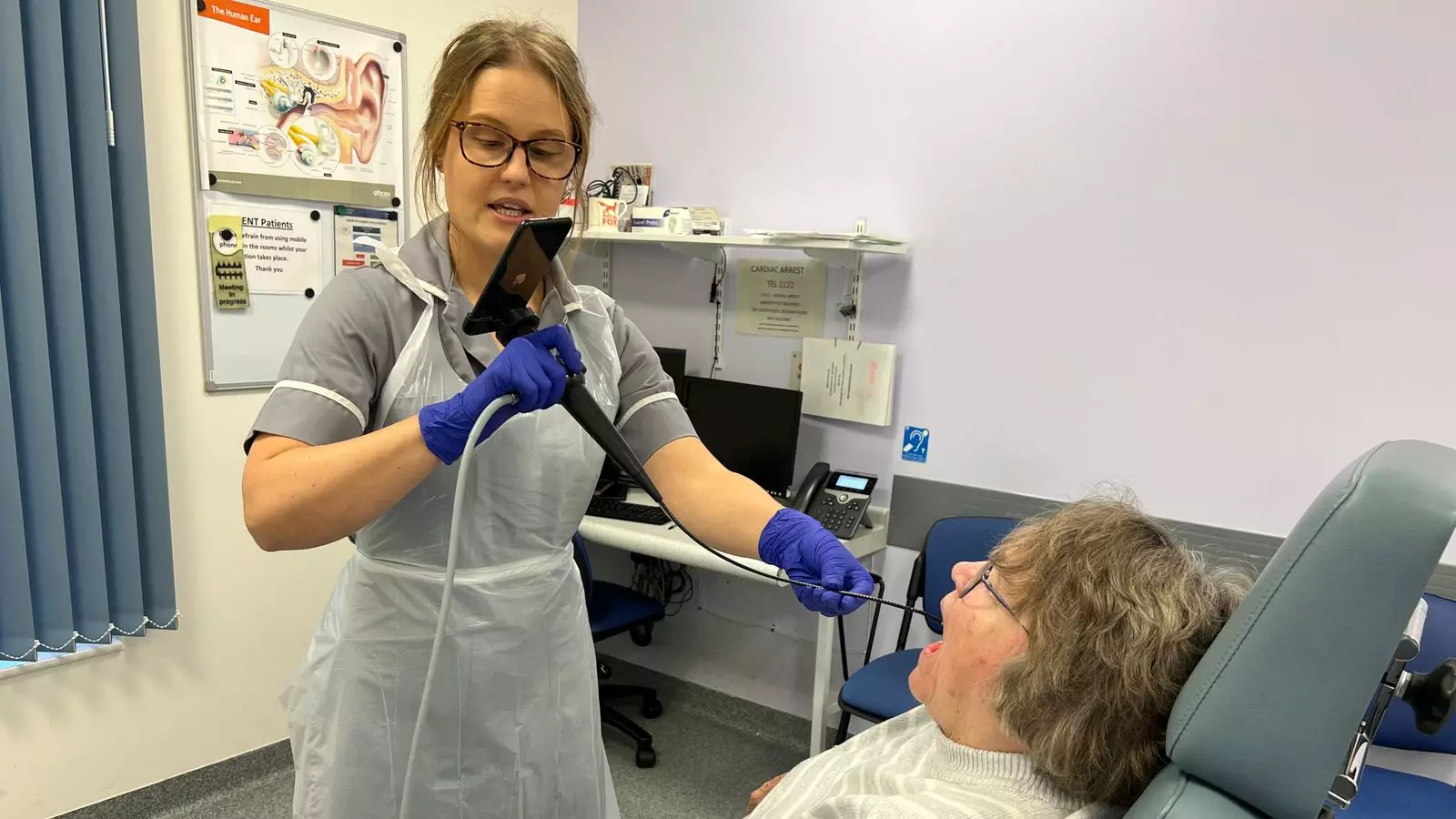In an era where technology increasingly intertwines with health care, the National Health Service (NHS) in the UK has introduced an innovative approach to diagnosing throat cancer through a trial involving a new iPhone adapter. This device, which connects to Apple’s smartphones, aims to revolutionize the speed and efficiency of throat cancer diagnostics, potentially changing the landscape for early detection and patient reassurance.
Traditionally, diagnosing throat cancer involves an endoscopic procedure where a long, thin tube with a camera is inserted through the mouth or nose. This method, while effective, can be invasive and time-consuming, leading to extended periods of anxiety for patients awaiting results. The conventional route often stretches into days or weeks, during which time patients grapple with uncertainty about their health. Given that throat and other head cancers prompt around 250,000 urgent referrals to the NHS annually—with a mere 5% being diagnosed with cancer—the need for an expedited and less invasive alternative is glaringly apparent.
The endoscope-i adapter allows health professionals to capture high-definition footage of a patient’s throat, which can then be shared seamlessly with specialists through an accompanying app. This immediate access to visual data means that patients can receive results in a matter of hours instead of enduring the prolonged waiting period typically associated with conventional tests. According to the initial pilot conducted by the North Midlands University Hospitals NHS Trust, over 1,800 low-risk patients were reassured that they did not have throat cancer, with significant follow-up occurring within just 23 hours.
Moreover, the preliminary findings are encouraging; around 1% of individuals assessed through this new technology were diagnosed with throat cancer, underscoring the device’s potential efficacy in early detection without missing critical cases.
The implications of such rapid diagnostic capabilities are profound. Dr. Cally Palmer, the National Cancer Director at NHS England, emphasizes that early detection is paramount for effective treatment, offering the best chances for patient survival. Patients such as Janet Hennessy, who participated in the trial, have expressed relief and gratitude for the technology, highlighting the emotional burden lifted when results are delivered swiftly and decisively.
In addition to benefiting patients psychologically, the device also eases the strain on healthcare resources. With the potential for its widespread use in community settings and diagnostic centers, the device alleviates the need for hospital visits, subsequently reducing waiting times for patients who do require hospitalization.
Personal experiences further illuminate the device’s significance. Kyle Jones, for instance, faced a distressing journey where his only symptom was a persistent hoarse voice. His diagnosis via the adapter shifted from confusion and fear to a route for timely intervention. With his voice box removed to prevent further advancement of the disease, he reflects on the profound impact this innovative diagnostic tool had on his treatment outcome. The emotional turmoil of uncertainty was curtailed significantly, affirming for him the importance of quick and accurate assessments.
In contrast, the emotional toll on patients awaiting traditional test results can be devastating, as they often live with the unending anxiety of potential cancer diagnosis. The merging of technology and healthcare epitomized by this iPhone adapter not only has the potential to save lives, but also to enhance the overall patient experience through reduced stress and quicker peace of mind.
As the NHS implements this device more broadly, it could herald a new chapter in cancer diagnostics, potentially setting a benchmark for other medical technologies. By marrying innovative technology with healthcare practices, clinicians and researchers can enhance early detection efforts, ultimately leading to better patient outcomes. The early indications from this trial hold promise, and as evaluations continue, there is cautious optimism that the device will soon become a standard tool in the fight against throat cancer, further empowering patients in their health journeys.
Embracing such advancements in medical technology transforms the narrative of cancer diagnosis, paving the way for a future where anxious waiting times become a relic of the past.

Leave a Reply